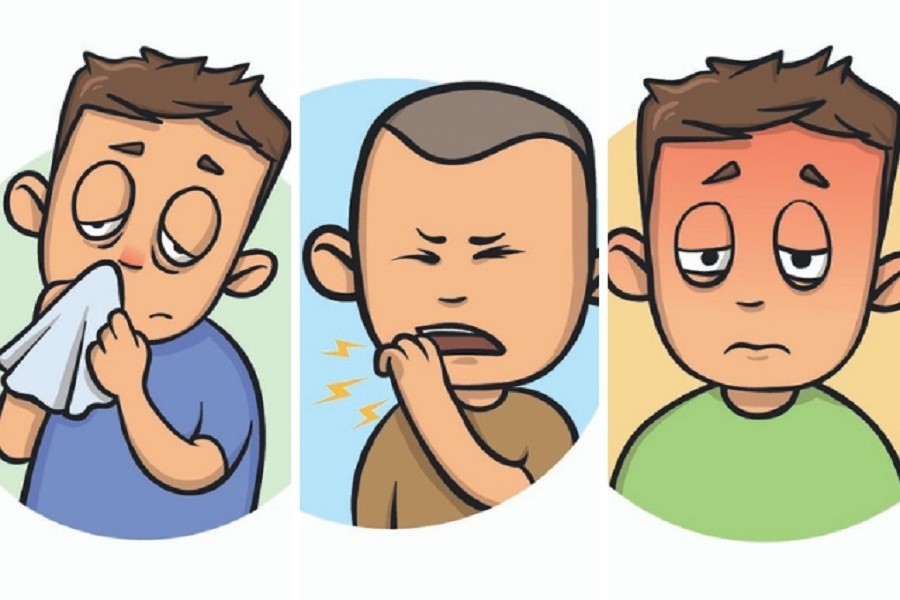Winter is almost here. The cool breeze of winter, while welcomed by many, also brings some health hazards. It is important to be aware of the common winter ailments and be prepared for them.
The risk of winter illness is more for certain groups of people, especially the elderly, children five years or younger, patients suffering from a chronic disease, physically or mentally handicapped people as well as women who are pregnant.
Common Cold
Cold is not a feature of winter only. For many, it is almost inevitable when the season is changing.
Nevertheless, it may be frequent during the onset of winter. Common cold comes with running nose, sore throat, cough, low-grade fever and occasional headache. It is a viral illness, so antibiotics have no impact on it unless there is a secondary bacterial infection on top.
One indication of whether there is a secondary infection is if the cold persists beyond a week. Usually, viral colds get better in 3-5 days and resolve by 7 days.
The most important rule to prevent the common cold, or any related infection is to consistently wash our hands with soap and water for at least 20 seconds. With the COVID-19 pandemic, it is expected that most of us have developed this essential hygienic habit.
Additionally, drinking warm (not hot) water and wearing warm clothes are necessary. If the cold persists for more than a week, or if the patient has serious problems like breathlessness, it may be necessary to consult a physician.
Flu
In western countries, winter is often called the flu season. That’s because of a high prevalence of flu cases around this time of the year. While flu and common cold symptoms are similar, flu is caused by a very specific virus called ‘influenza.’ It may turn severe among some patients.
It is advisable to take the flu vaccine every winter. Also, handwashing habits are helpful. Covering our mouths during coughing or sneezing is always good practice. Regular exercise and healthy eating are also essential as it builds up our immunity against infections.
Keeping our distance from someone suspected to have flu is advisable. If we experience flu symptoms, it’s better to take a day or two off from work/school.
Sore throat
Sore throats are a common feature of winter times. They are almost always viral infections. Although not usually serious, sore throats are uncomfortable and very annoying. It may be accompanied by fever, difficulty in swallowing, hoarseness of voice, etc.
For sore throat, drinking warm water is advisable. Gargling can also help to soothe the soreness. One common home remedy could be dissolving one teaspoon of salt in partly cooled boiled water and gargle several times a day with it.
However, if the sore throat is accompanied by a high fever, swollen lymph nodes or other serious problems, a physician must be consulted.
Bronchial Asthma
Cold is often a trigger for asthma patients. They remain on good health the rest of the year, but as soon as the cold weather sets in, they start to suffer from breathlessness or wheezing.
It is therefore very important for asthma patients to discuss with their doctor and prepare their medications beforehand. Additionally, staying indoors on a particularly cold day, covering one’s body under a few layers of cloth and putting a scarf over the nose and mouth when outside are good precautions to take.
Dry skin
This is almost a universal problem. The cold dry winter takes away the moisture from the air, as a result, our skin cracks up.
People who have dry skin due to some other diseases, their condition worsen during this time of the year. Though not everyone suffers from cracked skin, dryness is generally widespread.
There are several ways to combat this dry skin. First, we need to keep ourselves hydrated by drinking ample fluid. Second, using moisturisers on the skin is helpful. There are many good moisturisers in the market. We just have to make sure it suits our skin.
Also, the type of moisturiser may be important. Generally speaking, creams provide greater protection than lotions in winter dry skin.
Some of us prefer to take a long shower in hot water during winter. This is actually bad for our dryness. It is suggested to keep the shower time-limited, using lukewarm water and not to completely dry our skin after that.
In addition, if we apply a moisturising lotion/cream within three to five minutes of showering while the skin is still wet, it will help to trap the moisture inside.
Imtiaz Ahmed completed his MBBS from Dhaka Medical College.


